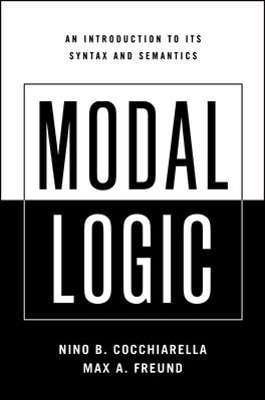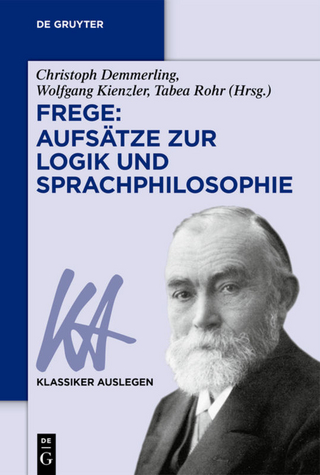
Modal Logic
Oxford University Press Inc (Verlag)
978-0-19-536657-0 (ISBN)
A separate sentential modal logic of logical necessity in logical atomism is also constructed and shown to be complete and decidable. On the first-order level of the logic of logical necessity, the modal thesis of anti-essentialism is valid and every de re sentence is provably equivalent to a de dicto sentence.
An elegant extension of the standard sentential modal logics into several first-order modal logics is developed. Both a first-order modal logic for possibilism containing actualism as a proper part as well as a separate modal logic for actualism alone are constructed for a variety of modal systems. Exercises on this level show the connections between modal laws and quantifier logic regarding generalization into, or out of, modal contexts and the conditions required for the necessity of identity and non-identity.
Two types of second-order modal logics, one possibilist and the other actualist, are developed based on a distinction between existence-entailing concepts and concepts in general. The result is a deeper second-order analysis of possibilism and actualism as ontological frameworks. Exercises regarding second-order predicate quantifiers clarify the distinction between existence-entailing concepts and concepts in general.
Modal Logic is ideally suited as a core text for graduate and undergraduate courses in modal logic, and as supplementary reading in courses on mathematical logic, formal ontology, and artificial intelligence.
Nino B. Cocchiarella, Professor Emeritus of Logic and Philosophy at Indiana University has published many new results on the logic of time, modality, logical necessity, philosophical and mathematical logic, formal ontology, theories of predication, reference, and nominalization. He is the author of several books, most recently Formal Ontology and Conceptual Realism. Max A. Freund is professor of logic and philosophy at the National University of Costa Rica, and has been a visiting professor at the most important universities in Latin America as well a visiting researcher at the University of Munich, Germany. He is the author of numerous articles on modal logic, sortal logic, epistemic logic, philosophy of language, philosophy of computability, second-order logic, judicial logic, and a forthcoming book entitled Judicial Logic.
1. Introduction ; 2. The Syntax of Modal Sentential Calculi, 2.1-2.3 ; 3. Matrix Semantics, 3.1-3.3 ; 4. Semantics for Logical Necessity,4.1-4.3 ; 5. Semantics for S5, 5.1-5.3 ; 6. Relational World Systems, 6.1-6.11 ; 7. Quantified Modal Logic, 7.1-7.6 ; 8. The Semantics of Quantified Modal Logic, 8.1-8.7 ; 9. Second-Order Modal Logic, 9.1-9.6 ; 10. Semantics of Second-Order Modal Logic, 10.1-10.5 ; AFTERWARD ; BIBLIOGRAPHY ; INDEX
| Erscheint lt. Verlag | 14.8.2008 |
|---|---|
| Verlagsort | New York |
| Sprache | englisch |
| Maße | 152 x 231 mm |
| Gewicht | 408 g |
| Themenwelt | Geisteswissenschaften ► Philosophie ► Logik |
| Geisteswissenschaften ► Philosophie ► Sprachphilosophie | |
| ISBN-10 | 0-19-536657-3 / 0195366573 |
| ISBN-13 | 978-0-19-536657-0 / 9780195366570 |
| Zustand | Neuware |
| Informationen gemäß Produktsicherheitsverordnung (GPSR) | |
| Haben Sie eine Frage zum Produkt? |
aus dem Bereich


